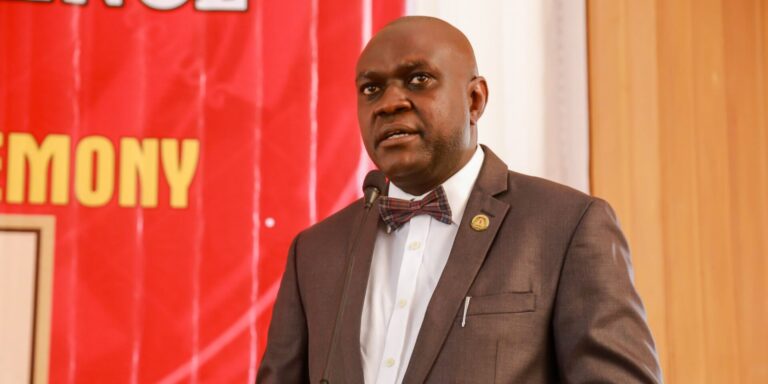Healthcare experts have identified funding, corporate investments, and other key factors as top priorities for driving Nigeria’s healthcare sector transformation in 2025. As workforce shortages are expected to become a more pressing issue than funding challenges, experts remain cautiously optimistic, recognizing both the hurdles and opportunities ahead.
Funding and National Budget Allocation
Dr. Doyin Odunbajo, a public health expert in Lagos, underscored that funding remains a critical issue for Nigeria’s healthcare system. He proposed that allocating at least 10% of the national budget to healthcare could help meet the Abuja Declaration target. While Nigeria’s 2024 healthcare budget of N2.48 trillion represents only 5.18% of the total budget, slightly down from the previous year, Dr. Odunbajo argued that the focus should not be solely on percentages but on the actual amount allocated in relation to healthcare needs and how effectively it is utilized. “I don’t think percentages matter as much as the actual amount (against need) and how efficiently it is used,” he emphasized.
Workforce Retention and Brain Drain
Dr. Benjamin Olowojebutu, First Vice-President of the Nigerian Medical Association (NMA), highlighted that workforce retention and the migration of medical professionals are critical challenges. He emphasized that tackling Nigeria’s brain drain in healthcare must be a priority, calling for investments in local training institutions, incentives to retain medical professionals, and partnerships for knowledge transfer. Additionally, he stressed the importance of healthcare workers’ welfare, advocating for health insurance and support systems for their families in the event of illness or death. “Compensation and continuity for their families should be guaranteed,” he added.
Government Role and Infrastructure Development
Dr. Olowojebutu called for the government to treat healthcare as a fundamental right, pushing for greater and more accountable budgetary allocations. “Improved infrastructure and performance-driven spending are critical for transforming the healthcare sector and achieving sustainable progress in 2025,” he concluded.
Addressing Healthcare Worker Shortages
Dr. Jonathan Esegine, Lagos State Chairman of the Association of Nigerian Private Medical Practitioners (ANPMP), also stressed the urgency of addressing the brain drain and manpower shortages in Nigeria’s healthcare sector. He urged the government to tackle corruption, improve resource allocation, and promote fiscal accountability to restore public confidence. Additionally, Dr. Esegine highlighted the importance of expanding health insurance coverage and improving economic conditions to reduce public frustration, ultimately improving health-seeking behavior and health outcomes.
Corporate Investment Opportunities in Healthcare
Larne Yusuf, a general practitioner in Lagos, pointed out that Nigeria’s growing economy presents significant opportunities for corporate investment in the healthcare sector. “With increasing demand for quality healthcare services, corporate players can invest in hospitals, medical technology, and pharmaceuticals. Such investments not only address healthcare gaps but also promise substantial returns, given the sector’s resilience,” he stated. Yusuf emphasized that corporate involvement could drive innovation, expand access, and enhance public health infrastructure.
Strengthening Public Health and Health Security
Dr. Odunbajo also called for strengthening Nigeria’s response to health emergencies, noting the importance of investing in early detection, emergency infrastructure, and disease surveillance, especially following lessons learned from the COVID-19 pandemic. He emphasized that resilient health systems, improved vaccine distribution, and increased funding for public health programs will be crucial in 2025.
Spotlight on Cancer Care and Treatment
Professor Francis Abayomi Durosinmi-Etti, a Clinical and Radiation Oncologist, stressed the need for continued investment in cancer care. With fewer than 100 radiation and clinical oncologists in the country, cancer treatment remains a significant challenge. He anticipates growth in treatment facilities, more international collaborations for training, and improved cancer awareness, enabling more people to seek funding for treatment. Clinical trials are also seen as a potential solution for providing affordable access to new treatments. “I am hopeful for improved access to treatment facilities, the growth of private sector involvement, and enhanced research capabilities in 2025,” he said.
Opportunities for Innovation and Reform
Despite the significant challenges, the opportunities for innovation and reform in Nigeria’s healthcare sector are equally considerable. Achieving the promise of 2025 will require collaboration between government, the private sector, healthcare professionals, and patients to build a system that prioritizes affordability, accessibility, and quality.
As Professor Durosinmi-Etti aptly put it, “The future of healthcare in Nigeria depends on our collective resolve to make it better not just for today, but for generations to come.” With sustained commitment and collaboration, a healthier Nigeria is within reach.


